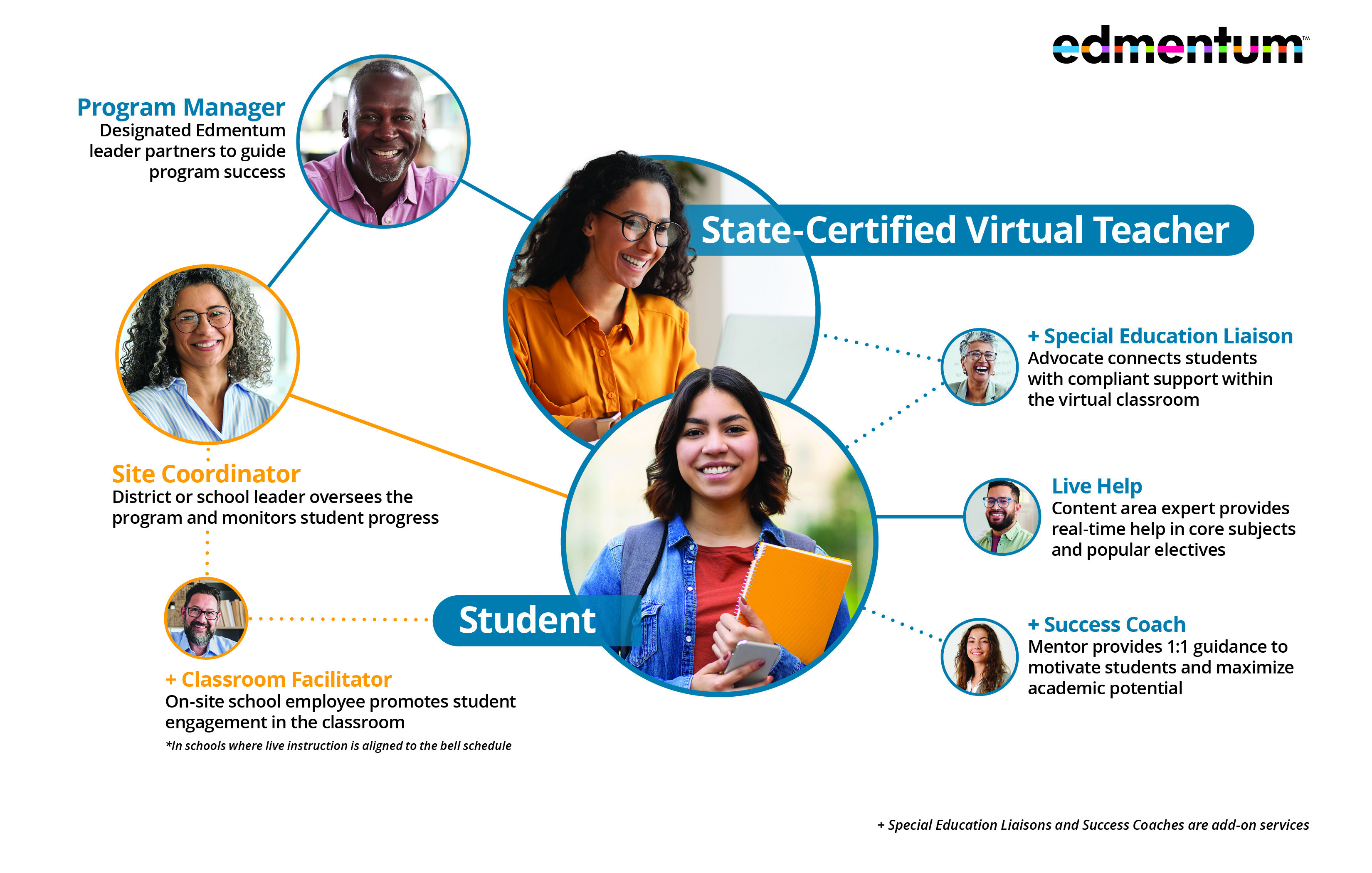Five Ways EdOptions Academy Teachers & Instructional Methods Engage Students

Student success in any course—virtual or not—doesn’t come down to just one thing. Motivation, a high-quality curriculum, and the right support are all important pieces of the puzzle. But, as is true in traditional courses, teachers are one of the most critical elements for student success. The EdOptions Academy team is entirely committed to building real relationships and helping students through each step of their virtual courses. But how do they make this vision a reality?

Five Ways EdOptions Teachers and Instructional Methods Engage Students
Flexibility, experience, and consistent communication help our teachers connect to students from all walks of life. Below are five ways EdOptions Academy teachers help students stay engaged and set our virtual courses apart:
1. Teachers are state-certified and trained to teach in a virtual environment.
EdOptions Academy teachers are held to the same standards as traditional teachers regarding education, experience, licensure, and state certification. Our hiring process includes a series of interviews, verifications, background checks, and training in virtual instruction methods to ensure that EdOptions Academy students are working with the best teachers possible.
All of our teachers have teaching experience, including expertise in virtual instruction. We recognize that virtual learning comes with its own challenges on top of those that all educators face, and we make sure that our EdOptions Academy teachers are well-prepared and supported by a team that maintains their high instructional integrity.
2. EdOptions Academy teachers meet directly with students
One of the best things about traditional classrooms is the opportunities for students to organically bring up questions to their instructors and work through challenging concepts together. Outside of live lessons, EdOptions Academy teachers offer office hours where students know that teachers are available to answer questions, talk through assignments, or simply chat with them. We also offer departmental "live help" hours where students can access a content area expert to ask in-the-moment questions as they work through their coursework.
During these different live sessions, our teachers work within a secure virtual classroom that is equipped with multimodal, interactive tools. The ability to collaborate, chat, and speak to each other further elevates these interactions to be more personal and productive for students. These strategies also turn live sessions into reliable opportunities to truly build relationships.
3. EdOptions Academy teachers use multiple communication channels.
Everyone has preferences when it comes to communication. Some of us could talk on the phone for an hour; some are prompt texters; some would rather do everything over email, and some crave more face-to-face interaction.
EdOptions Academy teachers recognize that acknowledging these different communication styles and needs is even more important in an online learning environment. They make a point of reaching out to students right away to find out their communication preferences, setting up a regular cadence to touch base, and discussing the best way to get hold of one another for questions, feedback, and concerns.
Ultimately, most EdOptions Academy students and teachers communicate via phone, video conference, email, text, and collaboration tools available within the course curriculum.
4. EdOptions Academy teachers work as a team.
Virtual courses should never be a lonely experience for students, and the same is true for virtual teachers. EdOptions Academy teachers work closely and collaboratively with one another, sharing problem-solving challenges, testing new ideas, and participating in professional development sessions—just like traditional teachers!
Our faculty works in content area and grade band teams led by experienced instructional leads who provide extra resources, coaching, and support. EdOptions Academy teachers have a built-in professional learning network, and it shows: the majority of our faculty have stayed with Edmentum for four years or longer, and they achieve a 97% success rate with students.
5. EdOptions Academy teachers provide data reports to parents and students.
Parents and other caregivers are a critical part of the education equation. EdOptions Academy teachers work hard to keep them in the loop about students’ progress in online courses. Teachers send out weekly progress reports that include details like:
- Current grades
- Course end-date reminders
- Recommendations concerning student pace, progress, and performance,
- Remediation or interventions as needed for parents/guardians to review
These reports are a great way to ensure that caregivers, students, and teachers are all on the same page and to allow educators to quickly address any red flags before students fall behind.
Are you interested in learning more about the student experience in EdOptions Academy courses? Check out this video from Instructional Lead Kelli Norwood to hear about how EdOptions Academy teachers work with students on a day-to-day basis or take a look at the Top Six Ways a Virtual Program Can Improve Student Achievement.